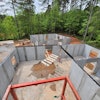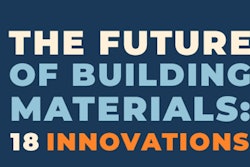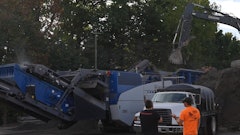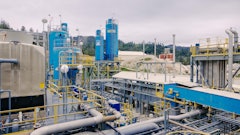
Over the last 18 years, LEED (Leadership in Energy and Environmental Design) certifications for new buildings have gone from an idea to a trend and now, a requirement in some cities. This means contractors must have heightened awareness, research and proactivity to be LEED-friendly.
Now more than ever, it is important that you are LEED-friendly to ensure you continue getting considered for the jobs you are bidding on. According to Jonathan Kraatz, Executive Director of the Texas Chapter of the US Green Building Council, “For a contractor working on delivering a LEED project, the fear of the unknown is often the first obstacle to overcome. By relying on your team of professionals — from design through commissioning — a project can be delivered in a smooth and efficient fashion.”
Here are three key things that a LEED-conscious contractor should focus on to deliver a successful certification:
Start with the end in mind
From the very beginning of planning a LEED project, do your best to be as involved in the pre-construction phase as possible. Make sure that your team and subcontractors know what the LEED project goals are from the beginning so that everyone involved is aligned with the same goals. Also, confirm that everyone on the project is paying attention to the fact that LEED points are critical. This will allow you to target specific materials like energy efficient windows or recycled materials to earn additional LEED points and give you the ability to plan any expected costs associated with the LEED certification. Specifically, pay attention to details around the purchasing aspect of a project, such as the budget reviews.
While materials are being quoted, also pay attention to the materials that have the lowest LEED impact. This will make life easier for your subcontractors so that they will not have to waste time filling out waste tickets for materials that have no impact on the LEED goals. As the planning moves along, continue to provide your input and expertise in your area of the project to find additional opportunities that will support LEED goals.
Get to know the LEED project administrator
All major projects are going to have a LEED certified professional on staff to ensure that the LEED goals are being met. This person may work for the design firm, your firm or a third-party company that is reporting to the owner. When LEED-related questions arise, this is the person to ask. Remember that when it comes to questions about reaching LEED goals, nothing is too small. If there is any confusion, you shouldn’t hesitate to ask what you need to be doing and collecting data on. The LEED certified professional, and everyone on the project, would much rather have too many questions asked versus losing LEED points because someone was hesitant.
Know what data the general contractor needs to collect from subcontractors
The biggest thing that gets contractors in trouble with project managers on LEED projects is failure to keep track of MSDS sheets and waste/recycling tickets. All workers or subcontractors on a project must track things like regional materials, renewable materials, certified wood, construction waste management, indoor air quality during construction, and commissioning (multiple credits). This tracked data is essential for a contractor to do their part in reaching LEED project goals.
By planning accordingly, keeping open communication with the LEED certified professional and tracking necessary data, constructing a greener building shouldn’t be a burden. As a contractor, being known as a LEED-friendly builder will only mean more business for you. By following these three steps and utilizing resources like your local USGBC chapter for LEED education, a successful year is in store!
Ray Hatch is Chief Executive Officer and Member of the Board with Quest Resource Holding Corporation (NASDAQ: QRHC). Hatch is a senior executive with in-depth experience building profitable business and orchestrating transformational growth. Hatch brings over 25 years of experience in both the waste management and food services industries that generated over a billion dollars in revenue. Previously, Mr. Hatch served as President of Merchants Market Group, an international food service distribution company. Hatch also served in various executive roles with Oakleaf Waste Management, a provider of waste outsourcing that was acquired by Waste Management.


















